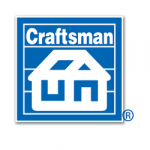Dan’s fate was now on the desk of two Illinois attorneys, both looking for ways to blast the other side.
The Bogard’s attorney had high caliber ammunition, courtesy of the lawmakers in Springfield. The labels were HRRA, CFA and HRFA. If you make a living in residential construction in Illinois, you need to know these acronyms:
HRRA — Home Repair and Remodeling Act
CFA — Consumer Fraud and Deceptive Business Practices Act
HRFA — Home Repair Fraud Act
HRRA requires a written contract for just about every residential remodeling or repair job over $1,000. The builder and the homeowner have to sign and date the contract and a brochure, ‘Home Repair, Know Your Consumer Rights’. That was Dan’s problem. No contract, no brochure and no way to collect. The court didn’t award Dan a dime for his trouble, leaving him $10,515 short on the Bogard job. But it could have been worse, as I’ll explain.
The enforcement teeth for HRRA are in Illinois’ Consumer Fraud and Deceptive Business Practices Act (CFA). Operating a home improvement business under an assumed name can earn a $2,500 fine and a year in prison. Dan had no problem there. He was doing business under his own name, Dan R. Smith Building Services. But failure to complete work on time gives owners the right under CFA to demand a full refund. What if the Bogards had demanded a refund a week or two after Dan pulled off the job? Under CFA, Dan would have had 10 days to return the $15,000 in progress payments to that point. The penalty under CFA for failure to make a full refund: Suspension of the right to do business and a fine of up to $50,000.
Illinois’ Home Repair Fraud Act (HRFA) threatens contractors with up to a year in jail and a $2,500 fine for making false promises, misrepresenting a material fact about the job, charging more than four times fair market value for any work, making false excuses for non-performance, failing to employ qualified personnel or violating the building code. Wow!
But, as I said, Dan got off easy. He got tripped up by HRRA and lost ten grand. A mistake under CFA can be (much) more expensive. Consider the case of Joe and Chris Taylor. They agreed to pay Father and Sons Inc. $40,000 for an addition to their home in LaGrange Highlands. The job went bad and ended up in arbitration. On a $40,000 job, the Taylors got an award under CFA of $40,000 for design defects, $22,006 for consultants, $75,000 for attorney fees, $1,400 for arbitration expenses and a discharge of all mechanics liens filed by Father and Sons Inc.
The moral of these stories: When a job goes bad, your paperwork better be good. If it isn’t, you’ve written a blank check that’s going to be cashed by an attorney for the other side.
Do yourself (and your bank account) a favor. Push back against consumer protection laws that back contractors into a corner. You’re liable for everything that’s either in or omitted from your contracts. Why not draft agreements that bend the bias in your favor? There’s nothing illegal about that.
If your client suggests using an A.I.A. form or some other boilerplate contract, explain that the document offered is unlawful for home improvement work in Illinois. Using an unlawful contract would be a deceptive act under HRRA and CFA and could land you in jail. Instead, offer an agreement that you drafted and that complies with Illinois law.

